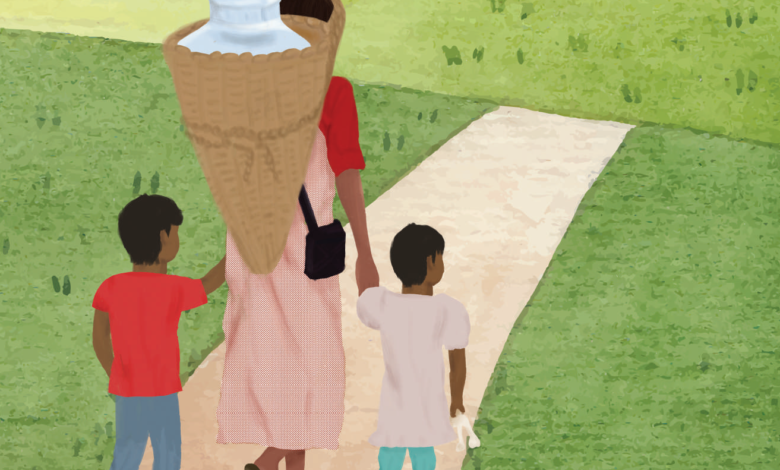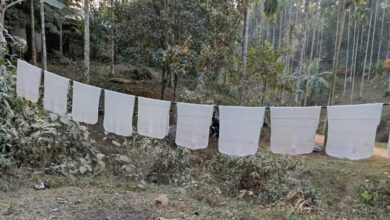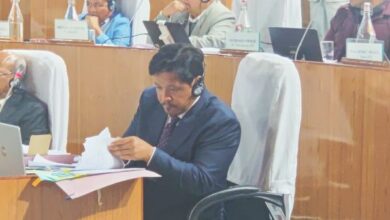Single & struggling but not giving up
A recent study enumerates the problems of single mothers & their causes & lays down suggestions for state, Centre

A single mother in her mid-thirties says she has to leave her two children with her sister in another district as she will not be able to juggle her job and family. “My children will not get my undivided attention as I have a job that requires me to be on the move almost the entire day and evening,” said the young professional.
Another woman, who has been raising her seven children alone for the past 12 years, narrated the financial problems the family often faces. “All my children are studying either in school or college. Education is expensive these days but I have to support them. Besides, there are other expenses. The government’s support and my meagre salary do not go a long way and we have to struggle for one square meal a day at the end of the month,” she added.
Such stories of struggle, penury and separation are aplenty in Meghalaya because the state has the highest percentage of single mothers in the country. A single mother is either an unwed mother, a deserted wife or a widow. In fact, “women and mothers have been defined by their relationship to a partner, or the lack thereof, never as a person or family unit in their own right”, states a report on ‘Exploratory Study on the Socio-Economic Status and Problems of Single Mothers in Meghalaya’.
The report, which is a first-of-its-kind extensive study on single mothers, was released at the end of last year. Conducted by the Meghalaya State Commission for Women (MSCW) and sponsored by the national body, the study was carried out between October 2016 and June 2017 in seven districts as per the 2011 census. The state currently has 11 districts.
The problem of single parenting, especially for women in India, has many socio-economic repercussions. For women belonging to the low-income group, it is difficult to get a well-paid job for various reasons, such as lack of funds to study further and a high number of dependents in the family.
The social taboo of being a single mother — women, single mothers or not, who spoke to Sunday Monitor on the issue between mid-November and December, said in over 90% of the cases, men are never questioned about the reason for staying single — especially an unwed or a divorced mother, also becomes a hindrance in the daily course of life, including at the workplace.
“Further, the family’s role as an agent of socialisation is also weak. Most often, the mother in her preoccupation with her struggle for existence does not find enough time to spend quality time with their children and to help them to grow up in a healthy manner both physically and psychologically,” the report observed.
According to the report, the reason for the high number of broken families can be traced to the traditional system prior to the advent of Christianity. During that time, marriage in these matrilineal tribal societies (Khasi, Garo and Pnar) was regarded as a civil contract and the marital ties can be terminated for a number of reasons, such as adultery, mental health issues, maltreatment etc.”.
“This traditional mindset persists even today to a degree and marital ties are often broken for a number of reasons even among Christians. Thus, in Khasi, Pnar and Garo societies there are many single mothers who are separated, abandoned or divorced from their husband,” it said.
Though families, mostly maternal kin, of these single mothers extend economic support, especially for the children, this is gradually becoming difficult as the cost of living in Shillong and other parts of the state is increasing with inflation.
Of the seven districts surveyed, Ri Bhoi had the highest percentage of single mothers at 19.2%, followed by West Khasi Hills (16.6%) and West Garo Hills (15.2%). East Khasi Hills had 10.6% single mothers. The study also finds that majority of the single mothers (59.8%) got married between 18-22 years and 65.2% were widows.
Though several single mothers do not take legal steps to ensure that their husbands or partners who deserted them provide maintenance, MSCW records show that 407 women approached the commission to get maintenance between 2004 and 2017.
“It is seen from the data that less than 15% of ex-husbands visit the children at least once a year and only 6% visit the children monthly. In terms of financial support, only an average of 1.5% of the single mothers always receive financial support while another 12% of the single mothers only receives the support sometimes,” the study showed.
The data showed that two-thirds of the single mothers had registered their marriage with their respective religious organizations and only 0.8 % had registered their marriage in court.
The state government in 2015 started the Chief Minister Social Assistance Scheme under which single mothers were provided Rs 500. However, less than 50% of single mothers benefitted from this. So, the financial crisis is often acute. Besides, there are other problems — juggling home and work, physical and emotional strain, lack of support etc. — which are common for almost all single mothers.
The study not only enumerates the problems and their causes but also lays down suggestions at the state level. The first and foremost recommendation is awareness among single mothers on women’s rights in marriage, existing government schemes and banking facilities, among others. The women’s rights commission also emphasises the need for adolescent education, such as sexual and reproductive health, life skill education and vocational guidance in schools, awareness on teenage pregnancy, and framing and implementation of rules and guidance of the Meghalaya Compulsory Registration of Marriage Act 2012.
At the central level, the report suggests the need for individuals and institutions supporting education of children of single mothers, better facilities under the Integrated Child Protection Scheme, adoption of villages by colleges and institutions to support children of single mothers and enhancement of the National Widow Pension Scheme from Rs 300 to Rs 3,500, among others.
The problems of single mothers can be addressed with the concerted efforts of society and the government. There should be awareness among the public too so that society and institutions become more inclusive and compassionate. This will not only support single mothers but will also help in ensuring a healthy childhood and growth environment for their children. This way, both society and government can prevent greater maladies, like crime and substance abuse, in the long run.
~ Team Sunday Monitor





